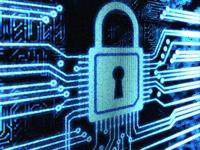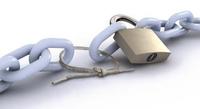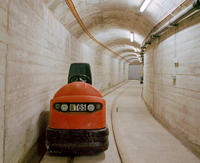-
Twelve Chinese hacker groups responsible for attacks on U.S.

U.S. cybersecurity experts say as few as twelve different Chinese hacker collectives, working at the behest of the government, are responsible for the majority of cyberattacks on U.S. businesses and government agencies; the bulk of the attacks are stealthy in nature and have resulted in the loss of billions of dollars’ worth of intellectual property and state secrets from the private and public sector
-
-
Electrical grid needs cybersecurity oversight: study

In a recently released report, researchers from the Massachusetts Institute of Technology say that a single federal agency should be tasked with protecting the United States’ electrical grid from cyberattacks; the Obama administration has proposed that DHS assume responsibility for the grid, while Congress has submitted proposals for both the Department of Energy and the Federal Energy Regulatory Commission (FERC)
-
-
MIT report warns U.S. electrical grid vulnerable
A new report from the Massachusetts Institute of Technology warns that the U.S. electrical grid is vulnerable to cyberatacks; according to the report, the U.S. electrical grid’s cybersecurity vulnerabilities stem from weaknesses in processes, technology, as well as the actual physical environment
-
-
Shell fears cyberattack on oil infrastructure
Oil executives fear that a cyberattack on critical infrastructure could wreak havoc by destroying facilities or disrupting production
-
-
Government outlines cybersecurity R&D priorities
The Obama administration recently unveiled its plan for government sponsored cybersecurity research and development programs
-
-
SCADA systems’ vulnerability key weakness in Smart Grid deployments
The discovery of the Stuxnet worm in 2010 shone a harsh light on the fragility of industrial control systems (ICS), such as supervisory control and data acquisition (SCADA) systems, and has created a new urgency among security vendors and utility managers alike; new research forecasts that investments in ICS security will total $4.1 billion during the years between 2011 and 2018
-
-
$3 million NSF grant for research into assured data provenance
The National Science Foundation supports funds new cyber security research into assured data provenance, the discipline of computer science concerned with the integrity and privacy of data sources, contents, and successive transformations
-
-
Cyber security measure requires more information sharing
The Cyber Intelligence Sharing and Protection Act of 2011 (H.R. 3523) made it through the House Permanent Select Committee on Intelligence on 1 December on a 17-1 vote. It is one of a dozen or so cyber security-related legislative initiatives proposed by lawmakers this year. The effort is bipartisan, having been introduced by committee chairman Mike Rogers (R-Michigan) and ranking member Dutch Ruppersberger (D-Maryland). The bill aims to promote greater information sharing between the federal government and U.S. businesses.
-
-
Making domain names safe and reliable
DHS Science and Technology Directorate (S&T) says it is doing its part to make Web sites more secure and reliable by enhancing the Domain Name System (DNS), which translates Web-site names like science.com into a network address like 1.2.3.4
-
-
GAO reports problems in cybersecurity hiring strategy
An audit by the Government Accountability Office (GAO) has found that some government agencies have failed to effectively develop or implement cybersecurity workforce planning strategies; agencies also reported problems in filling some cybersecurity positions, particularly those requiring specialized skills
-
-
Top Nine cyber security trends for 2012

Imperva, a data security specialist, see nine emergeing cyber security trends in 2012; rise in big data and application DDoS attacks among key concerns; “Hacking, by nature, is a discipline that relies on innovation,” explained Imperva CTO; “Knowing future, potential threats helps security teams fight against the bad guys”
-
-
Disaster-proofing email servers for maximum resiliency

On Tuesday Databarracks announced the launch of its Hosted Exchange solution, which allows companies to host email servers in a virtually indestructible location – a former U.K. Ministry of Defense bunker designed to protect critical systems in the event of a nuclear war
-
-
NERC CIP-compliant grid security reporting tool
NERC CIP Standard is a comprehensive framework of physical and cyber security best practices to safeguard the bulk power system for North America; Skybox Security shows NERC CIP-compliant grid security reporting tool
-
-
Interface could help Facebook members limit security leaks
Researchers develop a sign-up interface for Facebook apps could help members prevent personal information — and their friends’ information — from leaking out through third-party games and apps to hackers and identity thieves
-
-
Cyber-attackers think as regular crooks
An engineer and a criminologist are applying criminological concepts and research methods in the study of cybercrime; their work has produced recommendations for IT managers to use in the prevention of cyber attacks on their networks
-
More headlines
The long view
What Does Netflix’s Drama “Adolescence” Tell Us About Incels and the Manosphere?
While Netflix’s psychological crime drama ‘Adolescence’ is a work of fiction, its themes offer insight into the very real and troubling rise of the incel and manosphere culture online.
Confronting Core Problems in Cybersecurity
It’s common for governors and mayors to declare a state of emergency and activate the National Guard in the aftermath of hurricanes, tornadoes, and other natural disasters. But last month, officials in Minnesota took these steps in the wake of a major cyberattack on the city of St. Paul —a testament to how disruptive these attacks have become.
Voting from Your Sofa Is Secure Enough – but Will It Be Allowed?
A new electronic voting system developed at NTNU can withstand attacks from quantum computers, meaning digital elections can be conducted securely, even in the future.
